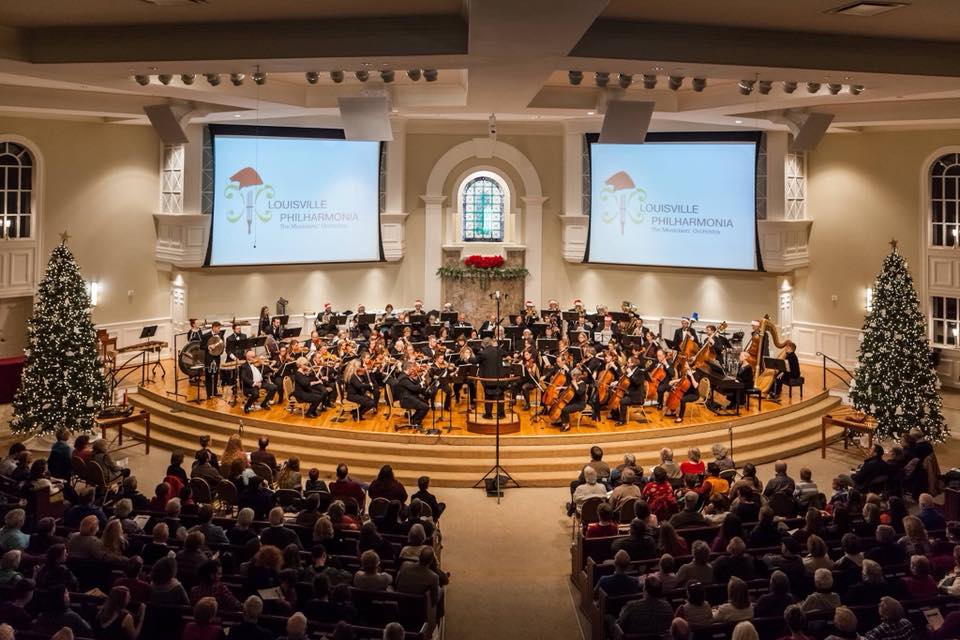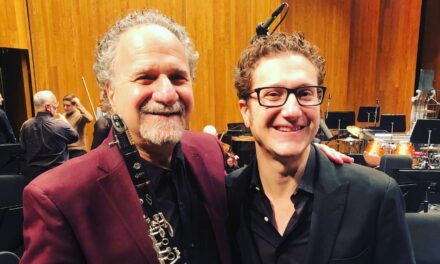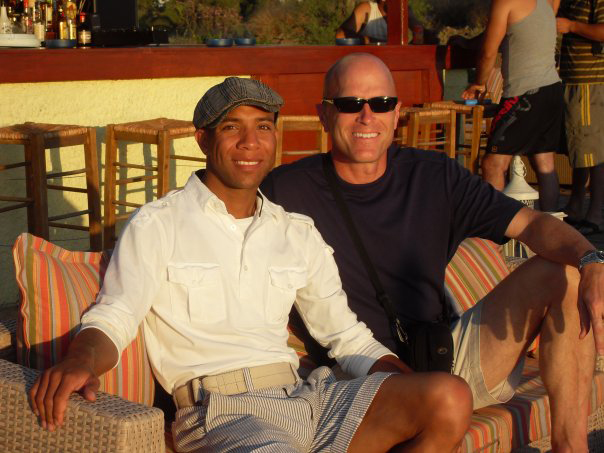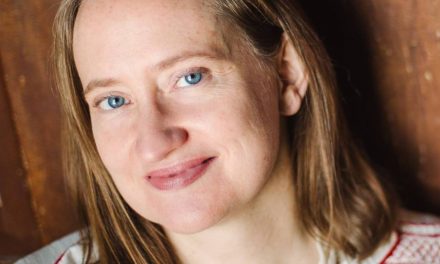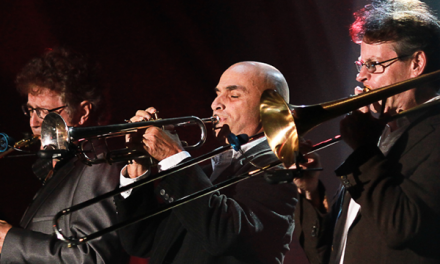Photo courtesy The Louisville Philharmonia.
Holiday Pops Concert
The Louisville Philharmonia
Daniel Spurlock, conductor
Review by Annette Skaggs
Entire contents copyright © 2017 Annette Skaggs. All rights reserved.
This group of 70 musicians, who have been together for six seasons now, know how to pack a sanctuary. On December 8th, approximately 700 people filled the pews and lined the walls of Beargrass Christian Church to hear the Louisville Philharmonia, aka The Musician’s Orchestra, present a delightful concert of not so standard Holiday music.
The evening began with a medley of recognizable tunes that centered upon the theme of The Holly and the Ivy arranged by C. Palmer. It was clever of the orchestra to use a keyboard to simulate where a harpsichord or glockenspiel would have been written within the piece. There were some moments that the top strings had a problem with fluid glissando, that would sound more disjointed than connected. Also, there were some intonation problems as well. Mind you, these were but small instances, but noticeable.
Things got better with a modern, stylized version of J.S. Bach’s Sheep May Safely Graze arranged by L. Caillet. It was certainly a departure from the classical sound but a welcome one. Staying with a theme of not so standard, we were treated to an Overture on French Carols by Phillip Lane. Built around the recognizable Sing We Now Noël, there were bits and pieces of other recognizable carols and hymns interspersed.
Perhaps one of my favorite pieces of the evening was an arrangement by A. Harris of the traditional O Little Town of Bethlehem. The harmony line performed by the middle strings was luxurious, warm, and inviting. The arrangement did not distract too much from the original but only enhanced it.
I’ve often said that Louisville is rich with talent and we were treated to a young vocalist, Abram Thomas Korfhage, who was the guest soloist for Howard Blake’s Walking in the Air, used in the animated newish Christmas classic The Snowman. I’ll be honest; this one was new to me. While I am familiar with other Howard Blake works, this one slipped past me. But after hearing a lovely clear tone from Abram’s soprano I am wanting to seek this piece out even more. Despite having some intonation and annunciation problems, probably due to performing with a large orchestra in front of a huge crowd, Abram did quite well. I am curious to see how his voice develops.
The first half of the evening concluded with a fantastic arrangement (by C. McAlister) of Russian Christmas Music by Alfred Reed. First performed in 1944 to mark a Russian/USA alliance, the piece features 300-year-old Russian carols: Carol of the Little Russian Children, the Antiphonal Chant, the Village Song, and lastly the Cathedral Chorus. The Carol of the Little Russian Children is a relatively slow section that allows for the clarinets to carry the melody, transitions into the Antiphonal Chant that transposes the melody to the horns, and builds quickly with the addition of woodwinds and ends with a crash of cymbals. The Village Song is quieter and reserved and carried deftly within the woodwinds and brass allowing the lower strings to carry the pulse. The Cathedral Chorus’ opening is unassuming; to where you aren’t sure when it began, but the quiet quickly fades as trombones and percussion start to build the orchestra to create a collective sound that can be described as majestic. And just when that pinnacle is reached, there is quiet and subtlety, before rising again to a truly magnificent ending.
The second portion of the evening began with Adeste Fidelis (O Come All Ye Faithful). Done well and you could almost sing along with it. Not too much variation from the original traditional version. This time of year, it is not uncommon to hear snippets of Tchaikovsky’s Nutcracker Suite played often and everywhere. The Philharmonia’s Overture Miniature needed more work. It was not the bright and airy sound that we are used to hearing – it was labored and sloppy. There were bright spots provided by the woods and bells, but the piece, on the whole, was disjointed and frankly not as enjoyable as I would have liked. The group redeemed themselves with A Merry Carol of the Bells Overture with a swing feel using a drum kit to add a fantastic punctuation of rhythm.
Among this volunteer organization of musicians, who all have careers outside of music, there are other hidden talents, such as music arranging. Trombonist Mark Kersting took the baton and conducted his arrangement of Silent Night. Great job.
Adding another piece of something different we were treated to Jeff Tyzik’s The Twelve Gifts of Christmas, featuring soloist John Trueblood, who has been seen/heard in many Gilbert and Sullivan Society works of late. While we are familiar with the Partridge in a Pear Tree, this piece focuses on the instruments as the gifts, giving each instrument (or groups of instruments) a chance to shine using classical works from Barber, Beethoven Mozart, Tchaikovsky, and others. While Mr. Trueblood is a fine tenor, there were a few spots that seemed to be out of his reach and a couple of times he got lost, but to be fair, it is a technically difficult piece for both vocal and instrumental. I did enjoy it for its quirkiness.
The evening ended with a great sing-a-long to Hark the Herald Angels Sing.
All in all, The Louisville Philharmonia’s performance was another beautiful and bright ornament for the tree of music, theater, and art that further enhances this time of year.
Bravi Tutti!!
Holiday Pops Concert
December 8, 2017
Louisville Philharmonia
At Beargrass Christian Church
4100 Shelbyville Road
Louisville, KY 40207
louisvillephilharmonia.org
Annette Skaggs is heavily involved as an Arts Advocate here in Louisville. She is a freelance professional opera singer who has performed throughout Europe and in St. Louis, Cincinnati, Boulder, Little Rock, Peoria, Chicago, New York and of course Louisville. Aside from her singing career, she has been a production assistant for Kentucky Opera, New York City Opera, and Northwestern University. Her knowledge and expertise have developed over the course of 25+ years’ experience in the classical arts.

